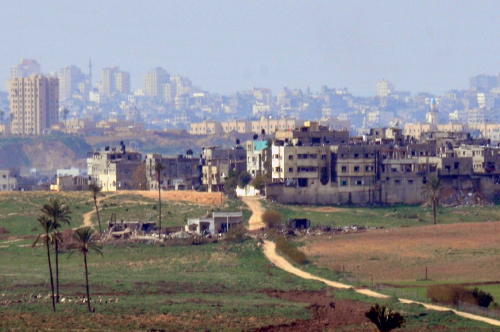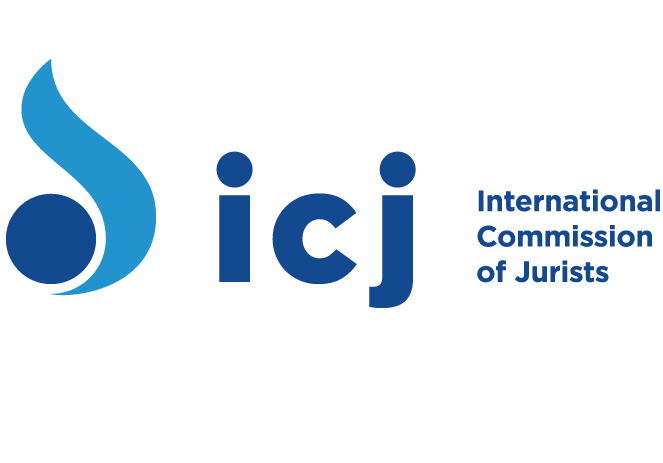 Speech by Nicholas Howen, Secretary-General of the ICJ, on the human rights situation in the occupied Palestinian territory.
Speech by Nicholas Howen, Secretary-General of the ICJ, on the human rights situation in the occupied Palestinian territory.
The human rights and humanitarian crisis in the Gaza Strip is a major test of the credibility of the new Human Rights Council because the facts and violations of international law are documented and clear.
Israel is legally bound to respect international humanitarian law in all Occupied Territories, including Gaza. As the Occupying Power, Israel must abide by the IVth Geneva Convention and protect civilians.
Israel has destroyed power stations, roads and other infrastructure in the Gaza Strip. It has bombed bridges and university buildings. The military operations have deepened an existing humanitarian crisis, further preventing access to food, clean water, medical services and electricity.
Such destruction is a war crime. It cannot be justified by military necessity and with these military operations Israel is directly attacking the civilian population and civilian objects . Individuals carrying out such war crimes or ordering them or acquiescing in them can and must be held criminally responsible.
The targeting of the civilian population also amounts to collective punishment against the 1.5 million people living in the Gaza Strip, in violation of the Geneva Conventions . By preventing civilians from having access to food and other essentials items, Israel is in violation of the obligation under international humanitarian law to protect civilians in occupied areas and its obligations under the International Covenant on Economic, Social and Cultural Rights. (But it should also be recalled that the humanitarian situation worsened after the US and the European Union froze funds to the Palestinian Authority.)
The Gaza Strip is being bombed, aircraft are flying low at super sonic speeds and there is a military build up of tanks at the northern border where incursions into the Gaza Strip have already taken place. These are acts of intimidation, prohibited by Article 33, IVth Geneva Convention. In effect, the Gaza Strip is under siege.
Palestinian armed groups have denied Corporal Shalit his status as a prisoner of war by demanding that his release is conditional on Palestinian detainees in Israeli jails being released. He is therefore being held as a hostage, which is a war crime. As a hostage, he should be immediately and unconditionally released.
But these clear violations of international law by the Palestinian armed groups do not in any way justify the excessive and disproportionate response by Israel and the direct targeting of the civilian population and the infrastructure they need to survive. One violation cannot justify another. The use of force by the Israeli army, compounded by the arrest of more than 60 members of the Palestinian government and parliament, looks more like reprisals for the capture of Corporal Shalit.
The whole population of the Gaza Strip is suffering. The violence is escalating, threatens to extend to other countries and is again destabilising the region.
Both the facts and the action required by the Israeli authorities and Palestinian armed groups are clear. The Council already has the valuable assessment of its Special Rapporteur on Occupied Palestinian Territories.
It is for now every member state individually and collectively to take urgent action. When war crimes are being committed on the scale of these Israeli military operations against civilians, states have a collective “responsibility to protect,” a commitment made by heads of state at the UN Summit only last September. And every state party to the Geneva Conventions is legally bound to act to prevent and stop war crimes. This includes arresting and prosecuting or extraditing those who may be responsible for war crimes.
The immediate imperative is to diffuse this dangerous situation; relieve the siege and ensure people have access to enough food, water, electricity, health care and other essentials of life; stop war crimes and gross violations of international human rights law; protect the civilian population from direct or indiscriminate attack, collective punishments and intimidation; and release all those arbitrarily detained.
Unfortunately there has been little discussion in this Special Session of the range of actions the Council could take. Mere words by the Human Rights Council will have little effect. Yet more fact-finding missions will delay action even further. But this body can be a driving force to ensure those with influence act.
The Human Rights Council should call on the Security Council to act that has the primary responsibility in this situation, especially given the apparent unwillingness or inability of the Quartet to respond to the crisis facing 1.5 million civilians.
The Human Rights Council, as a subsidiary organ of the General Assembly, should also now call on its parent body to act under GA Resolution 377 if the Security Council fails in its responsibilities. Under this “Uniting for Peace” resolution, the GA is empowered to take action itself if the five permanent members of the Security Council cannot agree on how to deal with a threat to international peace and security.
The Council should also urge the UN Secretary-General to exercise good offices, including urgently dispatching a senior envoy to find solutions that will ensure civilians are protected and have access to the essentials of life and that all those arbitrarily detained are released.
NOTE: This oral statement was prepared for, but not delivered at, the special session because oral interventions were suspended before all were delivered
HRC-HR situation palestine-advocacy-2006 (full text, PDF)




